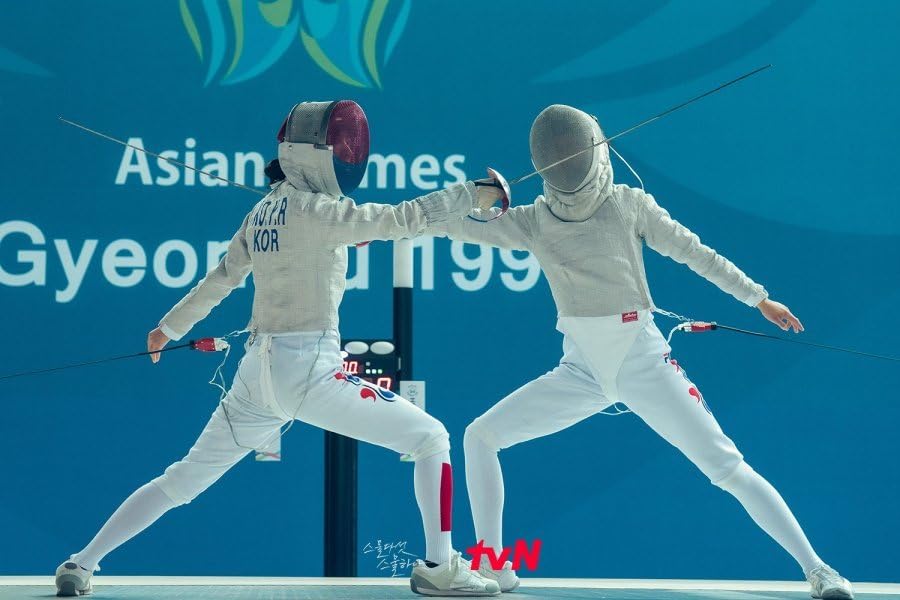The Renaissance of Korean Drama

Potentially, motion pictures are a great art, but that potential has not as yet been actualized, except in single instances and random moments. An art that requires the synchronization of so many esthetic elements and so many different talents cannot develop in a period of philosophical-cultural disintegration such as the present. Its development requires the creative cooperation of men who are united, not necessarily by their formal philosophical convictions, but by their fundamental view of man, i.e., by their sense of life. (The Romantic Manifesto 72)
As Rand predicted, today’s motion pictures tend to be vehicles for the perpetuation of nihilism. There seems to be an unwritten rule among screen writers that any achievement must necessarily be undercut by loss, death, and destruction inflicted by a malevolent universe; if the latter were omitted, they fear critics may categorize their work as unrealistic.
Devoid of such nihilism, Mr. Sunshine (미스터 션샤인) was able to reach the full potential of motion picture. Mr. Sunshine provides a glimpse into a world centered around heroic individuals fighting for values—in spite of Japanese savages intent on destruction.
Given the state of today’s motion picture, one may assume this type of art may fall into the category of “single instances and random moments.” For a while, I was pessimistic about delving into a new series; after experiencing Mr. Sunshine, I assumed anything else would fall short. I was proven wrong when Twenty Five, Twenty One (스물다섯 스물하나) was released in April.
As an aside, the shallow and unintegrated scenes of most modern motion picture allow the viewer to be in a half-conscious state and still matiain comprehension. Mr. Sunshine’s complex opening sequence primes the viewer for the type of active viewing that will be required to comprehend the intricacies and connections between its scenes. As Twenty Five, Twenty One does not have such an opening, the viewer may risk reverting to the state of partial focus common while watching television, but this series also requires the viewer’s full attention.
The series opens with Na Hee-do (나희도), a passionate yet immature teenage fencer. When the 1997 IMF crisis creates economic hardship, her high school fencing team is eliminated due to budget cuts. However, committed to her goal of becoming her idol’s rival, she aspires to transfer high schools so that she can train with her. Though her methods are ill-advised, one must admire her persistence; she is undeterred by the cynical criticism from the adults around her.
However, it isn’t until the second episode that it becomes apparent Twenty Five, Twenty One is something special. In particular, pay close attention to the final scene; this scene beautifully conveys abstract philosophical ideas about life by capitalizing on all the esthetic elements available in motion picture—this scene conveys the essence of Romanticism.
Throughout the series, Hee-do retains her original sense of life—facilitating her development into a value-driven woman. As today’s youth tend to lose their passion for life early on, Hee-do's character demonstrates how the transition from adolescence to adulthood ought to be. After completing this series, I proceeded to watch Start-Up (스타트업) and Itaewon Class (이태원 클라쓰)—both of which were at the same level in terms of esthetics and philosophical significance.
Given the dominant philosophy of our time, one would expect art of this caliper to be exceedingly rare. However, considering all four aforementioned titles have been released in the span of four years, I believe Korean drama is experiencing a renaissance in which the potential Rand recognized has finally been realized.
To be clear, I am not claiming all Korean dramas meet this standard; to the contrary, titles such as Parasite (기생충) and Squid Games (오징어 게임) are among the worst offenders in terms of their explicit promotion of nihilism. Nonetheless, the four titles I have mentioned all exemplify proper Romanticism and thus receive my highest reccomendation. Though each title has a distinct theme, all demonstrate happines is possible and acheivable through individual volition in this benevolent universe.




